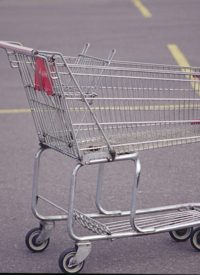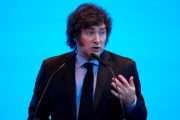
This is a law to protect the people from capitalism. We have a tough battle ahead [because] inflation is one of the biggest problems we have.
I’m at the front of this operation, and we’re going to occupy factories and companies. We’re going to nationalize what needs to be nationalized. The bourgeoisie hoard milk, sugar and cooking oil and then [they] blame me. But it’s their fault, the hoarders.
The citizens were smarter than Chavez. Having lived under a regime enforcing price controls on cooking oil and sugar with its natural and predictable resulting shortages, they looked at the list of household items about to be “fixed” and went shopping before the items disappeared. Evangelina Guerra, standing in line to get into the Dulcinea market in Caracas, said, “This is more regulation on top of regulation, and what we have is sky-high inflation and a lack of products.” In fact, cars were parked two rows deep and even onto the sidewalk in front of the store. Shelves normally full of toothpaste, soap, and toilet paper were being cleaned out faster than stockers could replenish them.
Jonathan Maestracci, a 24-year-old student, said, “We heard rumors that there’d be shortages of toilet paper and toothpaste and all basic hygiene products. Finding coffee now is practically impossible. It’s better to buy in big quantities [now] thinking about what could happen. If nothing happens, you just keep it.”
“I’m buying everything that’s on the [new] price control list that’s going to be regulated,” said Elena Ramirez, a retired schoolteacher, purchasing 12 packages of toilet paper (each with four rolls). “Everyone is in the same game. It’s madness,” she added.
The fact that the government’s central bank has doubled the money supply over the past four years has nothing to do with prices going up, according to Chavez. With price inflation running at an annual rate approaching 30 percent, the President prefers to blame the consumer and ignore the natural consequences of the government’s actions. Karlin Granadillo, who heads up the price control agency, said, “The law of supply and demand is a lie. These are not arbitrary measures. They are necessary.”
The price inflation driving up prices has been exacerbated by currency controls that prevent consumers from converting their depreciating local paper money into dollars or euros, thus giving them little option but to spend it before prices rise further. But the impact will hit the poor the hardest. Elsy Valladares, a publicist standing in line, expressed her outrage: “There’s still going to be speculation and shortages, and who will suffer the most? He who has the least. If you have money, you can buy a little more. But what about those people who live on minimum wage or work by the day, do you think they can come and load up on stuff?”
Economics professor Murray Rothbard wrote, “In every age, in every culture, price controls have never worked. They have always been a disaster.” He then reminded his readers what happened in the United States in 1946 when price controls were lifted from every commodity, except meat. As a result, meat was in increasingly short supply, and President Truman considered intervening. On a radio broadcast he said he even considered nationalizing the Chicago meatpackers for hoarding meat, but then realized that they had no meat either. Then, Truman said, he considered sending troops into Midwestern towns to seize all their livestock, but then decided that that move was “impractical.” Rothbard noted:
Truman reluctantly concluded that there seemed to be only one course left to him: to abolish the price controls on meat, which he proceeded to do. In a couple of days there was plenty of meat for consumers…. The meat crisis was over. Prices? They did not, of course, go up to infinity. They rose by something like 20% from the unrealistic control level.
That is the law that Chavez and his price control agency will not be able to break. In referring to the French Revolution, Jonah Goldberg explained:
The problem was that since French bakers were denied the ability to make cheap bread at a profit, and forced to sell expensive bread at a loss, they did the only rational thing possible: They made very little bread at all.



